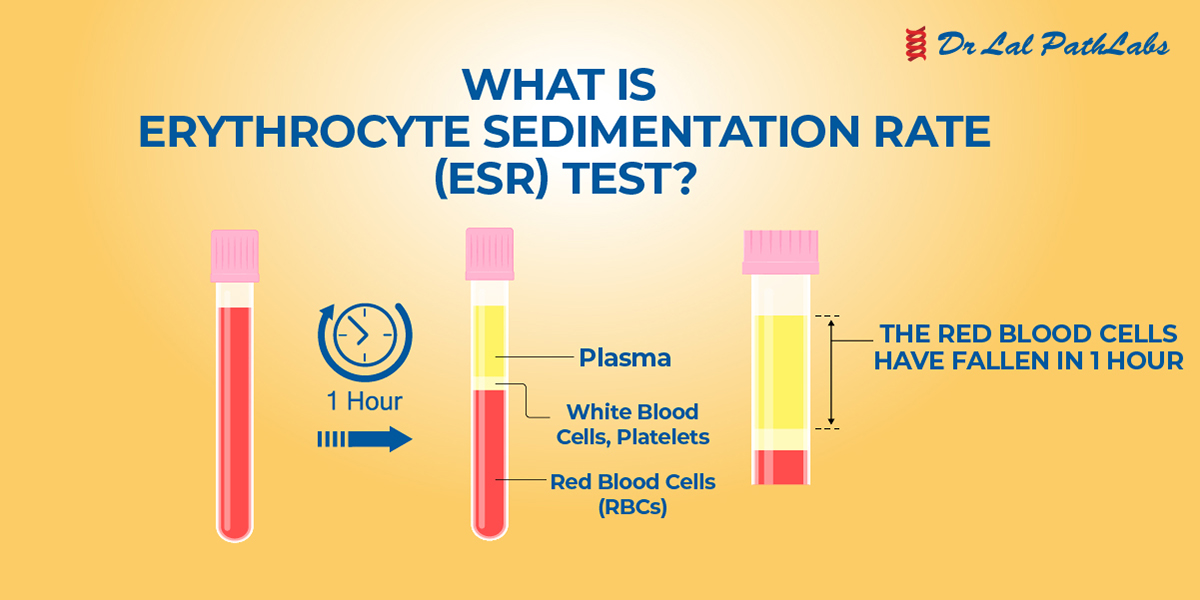Erythrocyte Sedimentation Rate (ESR) Test: What You Need To Know
What is the Erythrocyte Sedimentation Rate (ESR) Test?
The Erythrocyte Sedimentation Rate test, or the ESR test, is done when the doctor suspects you have a high level of inflammation in your body. It is also known as the Sed Rate test.
A reaction of the immune system to an infection or injury is inflammation. Inflammation could also indicate a chronic disease or another medical condition.
What does the ESR Test measure?
The ESR test measures the level of inflammation in the body. After this, other diagnostic tests are done to find the cause of such inflammation.
Some causes of inflammation could be arthritis, vasculitis, or inflammatory bowel disease. The ESR test could also be used to monitor an already existing medical condition.
When is the ESR test recommended?
The Erythrocyte Sedimentation Rate (ESR) test is recommended for people who experience an inflammatory condition related to diseases such as arthritis or inflammatory bowel disease (IBD). These people experience symptoms such as:
- Joint pain or stiffness, especially in the morning. This could last a good 30 minutes.
- Weight loss which was not intended
- Headaches
- Pain in the pelvis, shoulders, or neck
- Fever
- Digestive irregularities such as diarrhoea or blood in the stool.
How is the ESR test performed?
The ESR test does not require any special test preparation. Blood is drawn from the veins like any other blood test.
Females generally have a higher level of ESR than men. The normal levels of ESR are different for different age groups. Your doctor will decide what is normal for your body depending on a host of factors.
What are the risks of the ESR test?
The ESR test is a safe, standard test, and there are minimal risks involved, such as:
- Bleeding
- Lightheadedness
- Infection
- Bruising
What the results may indicate?
The ESR test results are usually measured in millimeters per hour (mm/hr).
Elevated ESR test results can be caused due to conditions such as:
- Infections, such as bone infection, heart infection, tuberculosis
- Autoimmune disorders such as lupus and rheumatoid arthritis
- Anaemia
- Kidney disease
- Thyroid disease
- Certain types of cancer, such as lymphoma
- Tissue injury or trauma
- Red blood cell abnormalities
Lower than expected levels of ESR may be caused by conditions such as:
- RBC disorders such as sickle cell anemia
- Leukemia
- Hyperviscosity
- Heart failure
- Certain liver and kidney problems
- High white blood cell count
It is essential to know that the ESR test is always used in conjunction with other diagnostic tests to detect and monitor health conditions.
The Erythrocyte Sedimentation Rate test only confirms the presence or absence of inflammation in the body. The test results are used in conjunction with other diagnostic tests, clinical findings, and medical history to make an accurate diagnosis.
Disclaimer:
This blog is for informational purposes only and should not be construed as advice or as a substitute for consulting a physician. It is not a substitute for medical advice or treatment from a healthcare professional.














